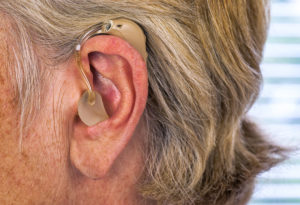What Happens When Your Hearing Loss is Related to Your Job?
Posted April 6th, 2017 by Anthony Carbone, PC.
Categories: Workers Compensation.
 All types of jobs can potentially subject employees to noise exposure. There’s no question that sirens, as well as large and small machines, can blast out piercing or other deafening sounds. So, what happens if the result is hearing loss? Are you entitled to workers’ compensation benefits?
All types of jobs can potentially subject employees to noise exposure. There’s no question that sirens, as well as large and small machines, can blast out piercing or other deafening sounds. So, what happens if the result is hearing loss? Are you entitled to workers’ compensation benefits?
You should know that noise exposure is not an uncommon problem. In fact, the United States Department of Labor, Occupational and Safety Administration (OSHA) estimates that twenty-two million Americans are exposed to potentially damaging noise each year. Those that may suffer hearing loss range from emergency response teams to construction workers and manufacturing and warehouse crews. Of course, the problem doesn’t stop there.
Although the report is dated, the Center for Disease Control and Prevention (CDC) did an analysis regarding the health hazards associated with noise exposure. Their report looked into several industries and also evaluated worker use of hearing protection equipment.
Noise Exposure and Hearing Loss
In the first place, it is important to note that high levels of noise can cause other disabilities. For example, permanent tinnitus can be a result of continuous noise exposure. Some think of tinnitus as limited to ringing in the ears. However, the term also refers to the perception of phantom sounds. You could also hear humming sounds.
How do you know that your work environment may be subjecting you to noise exposure? It could start off with ringing or humming sounds when you leave the job. It could be as simple as the inability to carry on a conversation with a co-worker standing right next to you. All things considered, it may be that you just can’t hear even when you are in a quiet environment.
You should know that most companies follow some sort of standards regarding hearing protection. For many, the purpose is to avoid risk and to comply with government regulations. Headphones and earplugs are required by a number of companies in high noise environments. Moreover, some employers may set up soundproof rooms to give their workers at least temporary reprieve from the excess noise.
In some cases, there may be a strict policy concerning hearing testing. These screenings will be required by the company and are designed to protect employees from further hearing loss.
Workers’ Compensation Claim for Hearing Loss
Not every state is the same when it comes to hearing loss. For the most part, noise exposure occurs over a long period of time. It is not necessarily noticeable during an employee’s tenure. Generally speaking, the statute of limitation falls from the last date of exposure. It can also run from the date the worker knew or should have known of the injury. It is important to speak with an experienced workers’ compensation attorney concerning the time limitations of your hearing loss claim.
In order to calculate a permanency award for hearing loss, the court will consider reports submitted by medical experts selected by the insurance company and your attorney. The benefits will be calculated based on the last date of occupational exposure.
With that in mind, take a look at the 2017 rate schedule. These numbers apply to individuals whose last noise exposure occurred this year. A person who suffered 100% hearing loss in one ear would be awarded a gross amount of $14,340, payable over sixty weeks. Complete hearing loss in both ears would result in total gross payments of $83, 600. This amount would be paid over a total of 200 weeks.
Contact Us
Have you suffered work-related hearing loss? The Law Offices of Anthony Carbone has handled many job-related noise exposure claims. Contact our office to see how we can assist you.


